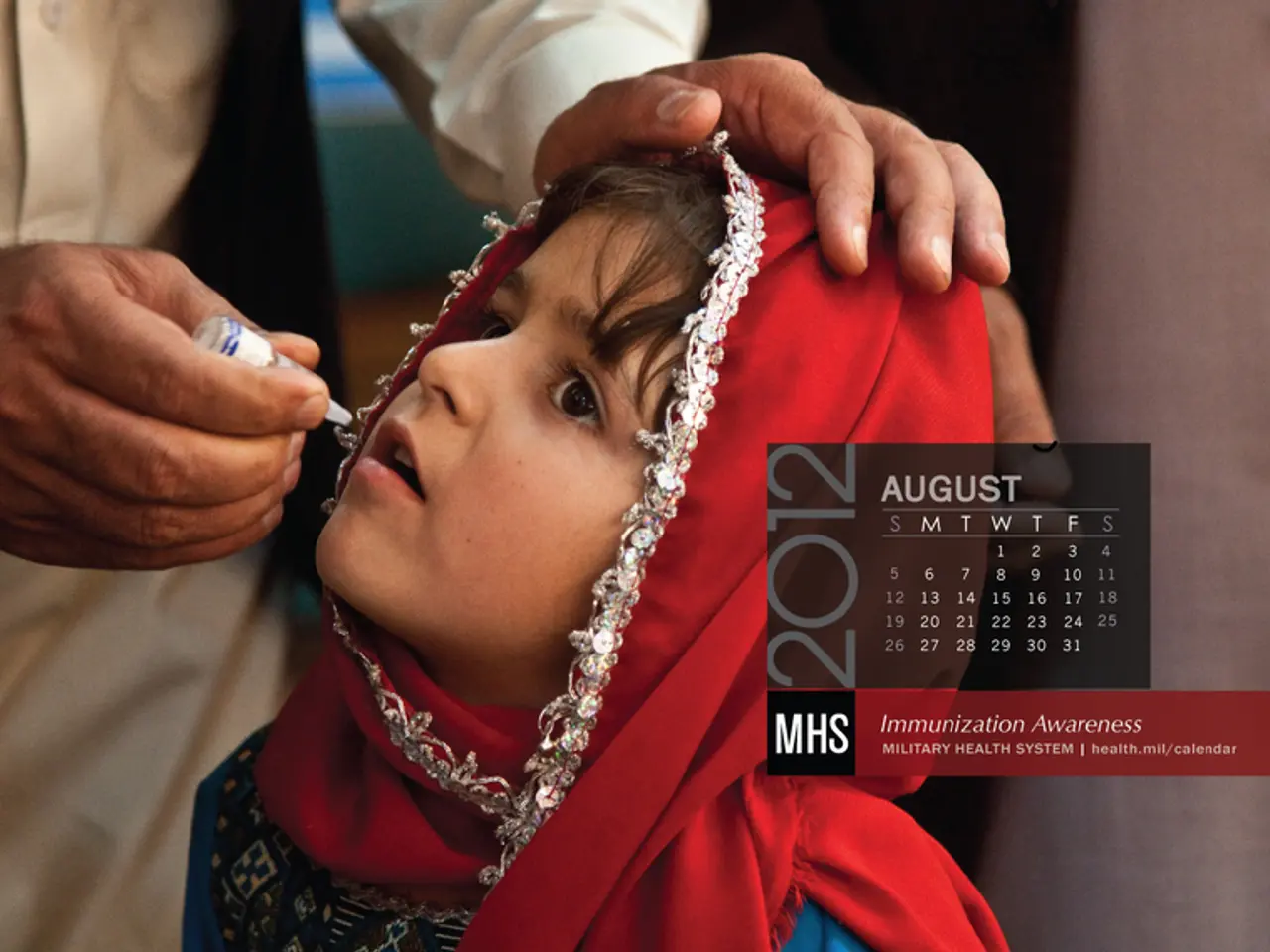Long-term Impacts of Respiratory Syncytial Virus (RSV) in Adult Populations
Respiratory Syncytial Virus (RSV) is a common cause of lower respiratory tract infections, often leading to pneumonia and other respiratory complications. This virus poses a significant threat to certain groups of people, particularly adults with asthma, Chronic Obstructive Pulmonary Disease (COPD), and congestive heart failure (CHF).
RSV-Related Complications
For individuals with asthma and COPD, RSV infection can trigger attacks and exacerbations, increasing strain on compromised lungs and potentially worsening chronic respiratory symptoms. This can lead to bronchiolitis (inflammation of small airways) and pneumonia, both of which impair breathing and may become life-threatening.
In the case of congestive heart failure and cardiovascular disease, RSV can worsen symptoms and has been linked to several cardiac complications such as heart muscle damage, ischemia, arrhythmias including atrial fibrillation, and increased short-term risk of heart attack and stroke, especially within 3 days after infection. It also can exacerbate heart failure even in people without prior diagnosis.
Studies indicate that the greatest risk of severe RSV outcomes and mortality in older adults is linked to coexisting cardiovascular and pulmonary conditions, especially when asthma and COPD are present together.
Preventative Measures
The American Lung Association identifies three high-risk groups: people over 65 years, adults with weakened immune systems, and adults with heart or lung conditions. To protect these groups, preventative measures are crucial.
Vaccination
RSV vaccines are recommended for adults aged 75 and older and for adults 50–74 who are at high risk of severe RSV disease, which includes those with asthma, COPD, or heart conditions. Recent clinical trials evaluate vaccines like RSVPreF3 OA for preventing lower respiratory tract disease caused by RSV in adults.
Infection Control Practices
In addition to vaccination, rigorous hygiene and exposure prevention practices are key. These measures include frequent handwashing with soap and water or alcohol-based sanitizer, avoiding touching the face with unwashed hands, staying away from people exhibiting cold-like symptoms, covering coughs and sneezes with a tissue or shirt sleeve and disposing of tissues properly, cleaning and disinfecting frequently touched surfaces and objects, and staying home when feeling sick to prevent spread to others.
People with congestive heart failure, asthma, or COPD should also continue their regular medications as prescribed to prevent health complications and consider consulting a doctor about adjusting treatment when sick.
In summary, adults with asthma, COPD, and CHF face increased risks of respiratory exacerbations, pneumonia, bronchiolitis, and cardiac complications from RSV, and should prioritize vaccination and rigorous hygiene and exposure prevention practices as key protective steps. Recovery from RSV can take anywhere from several days to several weeks, and it's essential for high-risk individuals to watch for signs of worsening symptoms when seeking emergency care.
- Individuals with asthma and COPD, when infected with RSV, may experience attacks and exacerbations, potentially causing bronchiolitis and pneumonia.
- RSV can worsen symptoms of congestive heart failure (CHF) and cardiovascular disease, leading to heart muscle damage, ischemia, arrhythmias, and increased risk of heart attack and stroke.
- Severity of RSV outcomes and mortality in older adults is often linked to coexisting cardiovascular and pulmonary conditions, especially in those with asthma and COPD.
- The American Lung Association identifies three high-risk groups: people over 65, adults with weakened immune systems, and adults with heart or lung conditions.
- RSV vaccines are recommended for adults aged 75 and older, and for those aged 50-74 who are at high risk, including those with asthma, COPD, or heart conditions.
- In addition to vaccination, infection control practices such as frequent handwashing, avoiding contact with sick individuals, and cleaning surfaces frequently are vital for protection.
- Adults with heart, lung, or immune conditions should continue their regular medications to prevent complications and consult their doctors about adjusting treatment when ill.
- Recovery from RSV can take several days to several weeks, and high-risk individuals should watch for signs of worsening symptoms when seeking emergency care.
- Science and medical research play crucial roles in developing vaccines like RSVPreF3 OA to prevent lower respiratory diseases caused by RSV in adults.
- Chronic diseases, such as type 2 diabetes, chronic kidney disease, and certain types of cancer, can affect respiratory health and increase susceptibility to RSV infections.
- COPD, asthma, and congestive heart failure are common medical conditions that put individuals at increased risk for RSV complications and exacerbations.
- Respiratory conditions like RSV can affect eye health, hearing, and even digestive health in severe cases, emphasizing the need for comprehensive health and wellness care.
- People with chronic diseases, such as autoimmune disorders, skin conditions like psoriasis, mental health issues, or other medical needs should also consider seeking therapies and treatments to support overall health, as well as adopting practices for fitness and exercise, hearing protection, skin care, and managing stress to promote well-being.




